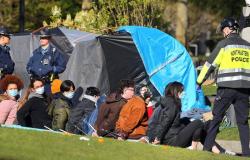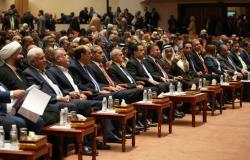News item | 27-03-2024 | 8:00 pm
Open letter to all future students in the Netherlands
No more terms such as ‘high’ or ‘low’ educated: Minister Dijkgraaf (Education, Culture and Science) wants to get rid of hierarchical indications in everyday language about further education. Such words perpetuate inequality and hinder the development of talent. Adjusting the language is the next step towards the equal appreciation of all forms of further education and the revaluation of vocational education. Dijkgraaf writes this in a letter to the House of Representatives and in an open letter to all future students in the Netherlands. The open letter is supported by student organizations JOB MBO, ISO and LSVb and by the National Action Committee for Students (LAKS).
Minister Dijkgraaf: “We need every talent. By organizing further education as a ‘range’, in which different courses are equally paralleled, we can achieve a number of important goals. For society, the labor market and especially for students themselves. As a student it is easier for you to find the right place. Whether at secondary vocational education, college or university. Students must also all be given the same opportunities to participate in student life. Fortunately, I notice a lot of recognition and support for this way of thinking. It is now time to take the next step. I call on everyone to participate.”
Every talent needed
There is great demand for people with MBO and HBO training, especially in healthcare, education and technology. But in education, a race to the top has emerged where a ‘higher’ education gives status, opens doors and offers a series of benefits such as greater happiness in life. Benefits that are passed on from generation to generation. That has to change, says Dijkgraaf. Proper education can play a crucial role in reducing inequalities and promoting connections in society. Young people must find a place that suits their wishes and talents, which leads to greater success as a student. He warns against the pressure to complete ‘the highest possible’ training: it causes stress and a higher risk of dropping out.
The revaluation of MBO and HBO and the realization of such a ‘range’ require a series of measures for the longer term. As far as Dijkgraaf is concerned, the next step that we can already take is to adjust the daily language use about further education. After all, words matter. Adjusting all legal concepts and formal names takes a lot of effort, but what is already possible is avoiding hierarchical designations in everyday language, such as ‘higher education’ and ‘secondary’. Instead of vertical language use abbreviations (such as MBO) and ‘HBO and WO’ as an alternative to ‘higher education’. And also with ‘higher vocational education and university education’ instead of ‘highly educated’. This measure is also in line with a recent call from the Utrecht MBO institutions, JOB MBO and the MBO Council. Dijkgraaf wants to start this at his own ministry, but he calls on everyone to follow this example and also think about alternative names.
Better guidance in study choice
To make it easier for students to find the right place, Dijkgraaf wants, among other things, to improve guidance during the study choice process. Last year, all final exam candidates were explicitly reminded of vocational education. Students must also be able to move easily from one form of education to another in such a range, for example from intermediate vocational education to higher professional education. Taking credits or taking preparatory modules should contribute to this.
Master title
Another goal is that all students can have an equivalent educational experience. Now, certain benefits such as access to student (sports) associations, entertainment venues or studying abroad are mainly for HBO and WO students. This has to change. The first steps have been taken. For example, MBO students can participate in introductory weeks in more and more cities. But Dijkgraaf believes that more can be done. For example, he is thinking of a master’s title for MBO students who want to further improve their craftsmanship after their diploma. This can be especially interesting for high-tech industries such as high-tech. And what happens in MBO is also interesting for HBO and WO. For example, HBO and WO students can benefit from a stronger link between education and professional practice (as is common in MBO). He wants to discuss the precise implementation of the goals with the educational field.
More collaboration
Furthermore, further education must be organized in such a way that educational forms work better together in the field of education and research. Dijkgraaf is therefore investing 1 million euros in educational projects in which mixed student teams from different educational sectors work together, each based on their own expertise. An important effect is that students (and teachers) from these three educational sectors meet each other more often.
A final goal that should be worked on is a clear identity of MBO, HBO and WO. If students no longer choose based on ‘height’, it must be clear where you can learn what and where what type of research is done.
Meeting with the educational field
Major decisions are up to the next cabinet, but Dijkgraaf will continue to discuss the fan in the near future, what can be achieved with it and how that should be done. He has that conversation in Parliament, but also with the educational field itself. He will soon organize a meeting with the educational field to share ideas and good examples of collaboration within education and research.






